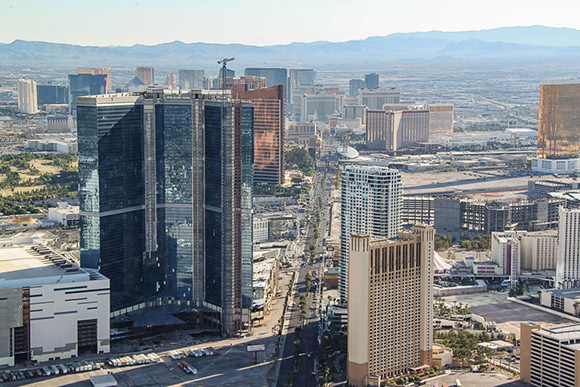The state of the U.S. economy in 2009 was not happy news for many individuals or companies, and the Las Vegas hotel/casino Fontainebleau was not immune to the looming financial woes. In the spring of 2009, the developers of the Fontainebleau issued a bleak warning to their lenders: if more monies were not invested in the project soon, the project would inevitably fail.
It didn’t take long for the warning to prove itself a prophecy. Just a short two months later, the hotel/casino – which was only partially built – went officially bankrupt. Now, a full decade later, the failed project remains on the Las Vegas Strip, half-finished and desolate. Las Vegas bankruptcy lawyers say this was one of the most glaring examples of the slowed economy of the time.

New Plans After a Long Bankruptcy
The Fontainebleau is over 60 stories high (one of the highest buildings in the Valley) with blue-tinted windows, and it resides on the north side of the Strip. Steve Witkoff currently owns the establishment and has grand plans to open the resort, finally, in 2022. He has re-branded the hotel as “The Drew Las Vegas,” and it is slated to be a 3,780-room resort.
Trading Hands After Bankruptcy
Steve Witkoff was not the first to get his hands on the property after it tanked during the recession. Billionaire Carl Icahn purchased the property from investors for a bargain deal ($150 million). He sold it in 2017 to Witkoff for $600 million.
As per an interview shortly before Witkoff purchased the property, Witkoff reported that he heard “150 nasty rumors” about the Fontainebleau building, including such extreme claims as that the building was totally falling down, that the copper cables used in its construction were stolen, and that the plumbers had poured concrete into all the pipes in the building.
In reality, Witkoff said, the building was in “exceptional shape.”
Las Vegas Boom to Bankruptcy
The history of the building is not unlike other projects developed in the early to mid-2000s during the bubble boom in real estate. As real estate prices were soaring, developers were creating hundreds of housing tracts in the Las Vegas Valley, as well as office buildings, condos, and various casino/hotel projects. The original Fontainebleau developers began development at the start of 2007 and were looking forward to opening the property in fall of 2009.
However, as the economy began to show its weaknesses and then to eventually deteriorate, the Fontainebleau was not immune to the difficulties that regular homeowners and other developers were also facing. Las Vegas was among the hardest hit markets in all of the U.S. during the recession.
Fontainebleau developers grasped desperately to survive, and during that process, they sued a handful of banks in 2009 claiming that the “unscrupulous” lenders had backed out of their commitments to finance the construction of the property. When all was said and down, the property was sold, and sold again, and is now underway to open in 2022.





